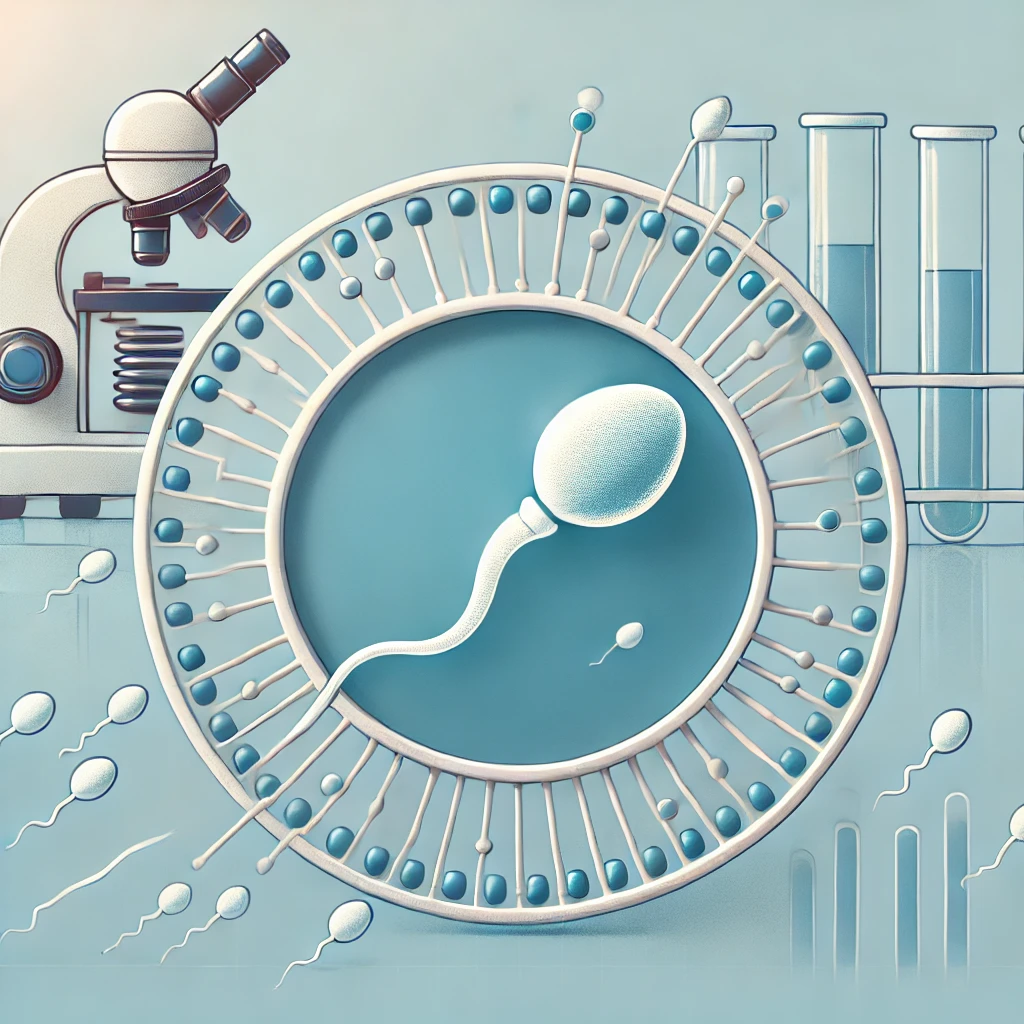How Do Advanced Sperm Selection Techniques Influence Assisted Reproduction Outcomes?


Advanced Sperm Selection and Its Impact
| Technique | How It Works | Influence on Outcomes |
|---|---|---|
| Density Gradient Centrifugation | Separates sperm based on density to isolate healthier sperm. | Improves fertilization rates but may not eliminate DNA-damaged sperm. |
| Swim-Up Technique | Selects motile sperm by allowing them to swim upward in a culture medium. | Enhances sperm motility but has limited ability to address DNA fragmentation. |
| Microfluidic Sperm Sorting | Uses microchannels to mimic the female reproductive tract, selecting sperm with better motility. | Reduces DNA damage and improves embryo quality. |
| Magnetic-Activated Cell Sorting (MACS) | Removes apoptotic (damaged) sperm using magnetic fields and markers. | Decreases DNA fragmentation and increases implantation rates. |
| High-Magnification Sperm Imaging (IMSI) | Allows selection of morphologically normal sperm under high magnification. | Improves ICSI outcomes by selecting high-quality sperm for fertilization. |
Sperm selection is a critical step in assisted reproductive techniques (ART), such as in vitro fertilization (IVF) and intracytoplasmic sperm injection (ICSI). Advanced sperm selection techniques aim to isolate the healthiest, most viable sperm, increasing the chances of successful fertilization, embryo development, and pregnancy. This article explores how these cutting-edge methods influence outcomes in ART.
Challenges in Sperm Selection
Traditional sperm selection methods, while effective to some extent, have limitations:
- Limited Evaluation: Basic methods like density gradient centrifugation focus on motility and morphology but cannot assess DNA integrity.
- Risk of DNA Fragmentation: Poor sperm quality, including DNA damage, can lead to lower fertilization rates and higher miscarriage risks.
- Unaddressed Apoptosis: Conventional methods may not adequately filter out apoptotic (damaged) sperm.
Advanced sperm selection techniques address these challenges, leading to improved ART outcomes.
Advanced Sperm Selection Techniques
1. Density Gradient Centrifugation
- How It Works: Sperm is spun in a density gradient medium, separating sperm based on their weight and motility.
- Benefits: Isolates motile and morphologically normal sperm.
- Limitations: May not completely eliminate sperm with DNA fragmentation.
2. Swim-Up Technique
- How It Works: Sperm is placed in a culture medium, and motile sperm swim upward, leaving immotile sperm behind.
- Benefits: Simple and effective for motility selection.
- Limitations: Does not address genetic quality or DNA integrity.
3. Microfluidic Sperm Sorting
- How It Works: Mimics the natural environment of the female reproductive tract, guiding motile and structurally intact sperm through microchannels.
- Benefits: Reduces oxidative stress and DNA fragmentation, improving embryo quality.
- Impact on Outcomes: Studies show enhanced fertilization rates and reduced miscarriage risks.
4. Magnetic-Activated Cell Sorting (MACS)
- How It Works: Uses magnetic fields and biomarkers to remove apoptotic sperm with damaged DNA.
- Benefits: Provides a population of healthy, non-apoptotic sperm for ART.
- Impact on Outcomes: Increases implantation rates and improves live birth outcomes.
5. High-Magnification Sperm Imaging (IMSI)
- How It Works: Uses high-powered microscopes to evaluate and select sperm with superior morphology.
- Benefits: Enhances ICSI outcomes by choosing the best sperm for fertilization.
- Impact on Outcomes: Leads to improved fertilization, embryo quality, and pregnancy success rates.
Influence on Assisted Reproduction Outcomes
1. Improved Fertilization Rates
- Advanced techniques like microfluidic sorting and MACS isolate higher-quality sperm, increasing the likelihood of successful fertilization.
2. Enhanced Embryo Quality
- Healthier sperm with intact DNA leads to better embryo development, reducing the chances of chromosomal abnormalities.
3. Higher Implantation and Pregnancy Rates
- Techniques like IMSI and MACS improve the selection of viable sperm, leading to higher implantation rates and sustained pregnancies.
4. Reduced Miscarriage Risks
- By minimizing DNA-damaged sperm, advanced methods decrease the chances of early pregnancy loss.
5. Optimized ICSI Outcomes
- ICSI, which involves injecting a single sperm into an egg, benefits greatly from advanced sperm selection methods like IMSI and microfluidic sorting.
Limitations and Challenges
While advanced sperm selection techniques offer significant advantages, they are not without challenges:
- Cost: These techniques can increase the overall cost of ART cycles.
- Availability: Not all fertility clinics have access to advanced equipment or expertise.
- Limited Evidence: Some methods, like MACS and IMSI, require further research to validate their long-term benefits.
- Not a Cure-All: Poor egg quality or uterine issues can still affect ART success, regardless of sperm quality.
Conclusion
Advanced sperm selection techniques are revolutionizing assisted reproduction, providing better outcomes for couples undergoing IVF and ICSI. By isolating the healthiest sperm, these methods improve fertilization, embryo quality, and pregnancy rates while reducing miscarriage risks. As technology continues to evolve, the integration of these techniques into standard ART protocols is likely to expand, offering hope to more couples facing infertility challenges.
Contact Us if you’re considering ART and want to learn more about how advanced sperm selection techniques can enhance your treatment outcomes. Our team is here to guide you every step of the way.
FAQs
-
What is the most effective sperm selection technique for ICSI?
- High-magnification sperm imaging (IMSI) is highly effective for selecting morphologically superior sperm.
-
Can advanced sperm selection techniques prevent miscarriage?
- They significantly reduce the risk of miscarriage by minimizing DNA-damaged sperm in ART procedures.
-
Are advanced sperm selection techniques available at all clinics?
- Availability varies by clinic, so it’s essential to inquire about specific technologies offered.
-
Do these techniques improve IVF success rates?
- Yes, techniques like MACS and microfluidic sorting enhance fertilization, embryo quality, and pregnancy outcomes.
-
Are there risks associated with advanced sperm selection methods?
- The risks are minimal, but the cost and access limitations may be barriers for some couples.



